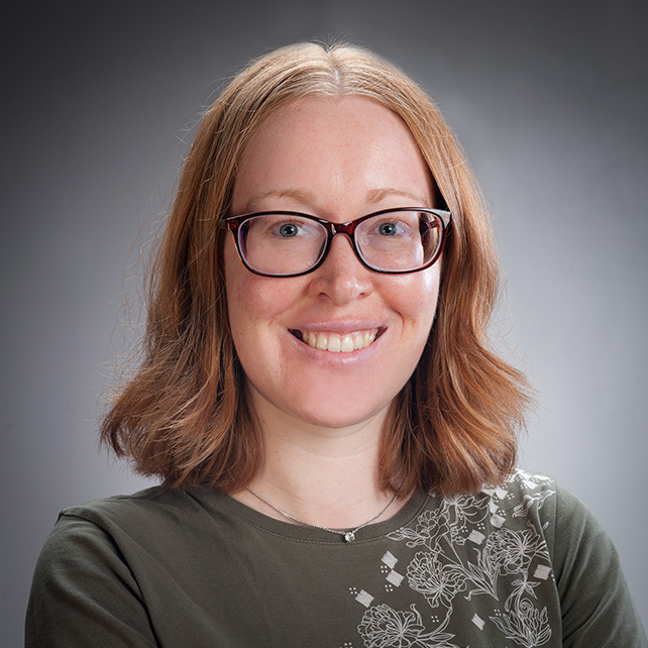Courses offered
Explore the range of courses offered by the School of Science in Society and how these might contribute to your studies.
The School of Science in Society offers a range of undergraduate and postgraduate courses, several of which are delivered entirely online. Explore our courses and contact us if you have further questions or want to discuss how to add Science in Society courses to your studies.
Undergraduate courses
Many of our undergraduate courses can be taken as electives in degrees across the University, or you can study toward a minor in Science in Society, or a major or minor in Science Communication.
SCIS 101: Your Body, Your Data, Your World: Science in Everyday Life
Trimester 1, Trimester 3, online
How does science materialise in our day to day lives? How does it interact with culture, political context, and economies? In this fully online course, you will learn from a range of experts about the science and technology that shape our everyday lives. We cover topics such as pain, big data and weather. We explore how these issues are represented in the media, and how the scientific is always also social.
SCIE 201: Special Topic: Challenging Cultures of Medical Science and Technology
Trimester 1, in-person
Changes in medical science and technology present profound challenges and opportunities. This paper explores the cultures of medical science and technology, and 'challenge' these using an interdisciplinary framework. Paying attention to colonialism, sexism, racism, class, ethics, and policies, we critically evaluate medical legacies and imagine better medical and scientific spaces.
SCIS 211: Contemporary Issues in Science, Environment and Technology
Trimester 1, Trimester 3, online
Explore some of the most topical scientific, environmental and technological issues in society. You will learn about the science underpinning each issue, and consider the societal context, implications, and controversies. This online course encourages the development of scientific literacy, understanding of the complexities of science engagement and communication, and consideration of science within a wider societal context.
SCIS 213: Principles of Science and Science Communication
Trimester 2, in-person
What is science, how is it conducted and communicated, and how does it sit alongside other knowledge systems? Explore the fundamentals of Western science, including scientific theory, methodology, culture and practice and consider how this worldview compares with Mātauranga Māori and other societal perspectives. You’ll be introduced to science communication theory and practice, learn some of the ways science is communicated to public audiences, and build your scientific literacy and understanding of the role of science in society.
SCIS 311: Science Communication
Trimester 1, in-person
Build your science communication knowledge and skills through exploration of science communication theory and practice. You will hear from science communication practitioners and learn to communicate science to non-science audiences through hands-on experience creating science communication outputs for different audiences, including opportunity to explore creative mediums from science writing and visual design to videos and podcasts.
SCIS 313: Beyond the Ice: A Journey into Antarctic Science and Culture
Trimester 2, online
Take a virtual field trip to Antarctica, as we go on location to explore the geology, biology, history, governance and art of the coldest, driest, windiest continent on earth. This fully online course features lectures by Antarctic experts filmed on location on Ross Island and in the McMurdo Dry Valleys of Antarctica. The diverse perspectives presented in this course will help you understand Antarctica, and contemporary Antarctic research, in a wider scientific, historical, political, social and cultural context.
SCIS 314: Science Communication Portfolio
Trimester 2, in-person
Expand your science communication theory and practice in this advanced course where you will create a multimedia portfolio exhibiting your skills in communicating science to diverse audiences. You will build your portfolio through a series of in-class sessions, including exploring different mediums and gaining practical hands-on skills, critiquing science communication and developing your own projects with the support of peer feedback workshops.
SCIS 315: Histories of people, environment and science in the Asia Pacific
Trimester 1, online
Ever wondered why Aotearoa New Zealand has so many farms, or why we are constantly dealing with problems related to introduced pests? Do you want to know the origins of our reliance on fossil fuels and the environmental crisis? This course places environmental, scientific and technological changes within wider historical contexts, mainly from the Asia-Pacific. You will explore a range of topics, such as introduced plants and animals and their environmental impacts; industrial forms of production and technology, and environmental impacts; western medicine and other ways of ensuring health and well-being; museums, environment and science; conservation and development; genetic organisms.
SCIS 316: Writing about Science, Health and the Environment
Trimester 2, in-person, limited entry
An advanced creative writing workshop in which students use the genre of creative nonfiction (including memoir, personal essays, travel writing, longform reportage) to explore topics in science, health and the environment. The course also involves representative reading in the genre, including works by Māori writers. This is a limited entry course. Applicants will be waitlisted and required to submit a portfolio of written work to be reviewed by the Course Coordinator.
Find out more
To find out more about incorporating Science in Society courses in your undergraduate studies, contact:
Postgraduate courses
The School of Science in Society's postgraduate courses contribute to the Master of Science in Society, the Master of Communication science communication specialisation, and in some cases may be taken as electives in other taught postgraduate programmes or as one-off courses for professional development.
SCIS 410: Science Communication
Trimester 1, in-person
An introduction to the theory and practice of science communication. Students will learn about the purpose of, audiences for and effectiveness of various forms of science communication. In addition, they will develop science communication skills and outputs related to specific areas of scientific research or societal concern and engage with science communication research and literature.
SCIS 411: Key Ideas in Science in Society
Trimester 1, in-person
An introduction to the key themes and readings relevant to the broad field of Science in Society, drawing on literature from, for example, Science, Technology and Society Studies (STS), History of Science and Public Engagement with Science (PES).
SCIS 412: Science in Society Research and Methods
Trimester 1, in-person
An applied overview of current research practice, findings and methods at the intersection of science and society. The course is delivered through public research seminars from guest speakers, as well as a 2–3-day wānanga and taught classes covering a selection of methods from those used in qualitative, quantitative, interpretive, creative and Kaupapa Māori research.
SCIS 414: Science and the Humanities
Trimester 1, in-person
This course explores important connections between science, Mātauranga Māori, the arts and humanities in the contemporary world. Material is drawn from a wide range of sources, including the environmental humanities, new media studies, Māori and other Indigenous scholarship, creative arts and writing. Students will have opportunities to explore academic and creative responses to contemporary issues relating to science and technology.
SCIS 587: Placement and Project
Trimester 3, in-person, restricted entry
Selected students will be offered the opportunity to complete a supervised voluntary work placement in a public sector agency, private sector establishment, or non-governmental organisation with a focus on any of research, policy, science communication or public engagement with science. The student’s project will be agreed between the student and the programme coordinator.
SCIS 588: Research Essay
Trimester 2, in-person
A supervised research essay approved by the Programme Director. This course allows students to experience the process of developing a Science in Society research question and writing an essay.
SCIS 589: Science Communication Project
Trimester 2, in-person
Students develop a science communication output accompanied by a critical essay reflecting on the process of developing the output and on the success of the finished product.
SCIS 590: Research Project
A supervised research project leading to a comprehensive written report. This course allows students to apply research skills learned in other Science in Society courses to a question at the intersection between science and society.
Find out more
To find out more about studying Science in Society at postgraduate level, contact:
Senior Lecturer
School of Science in Society


